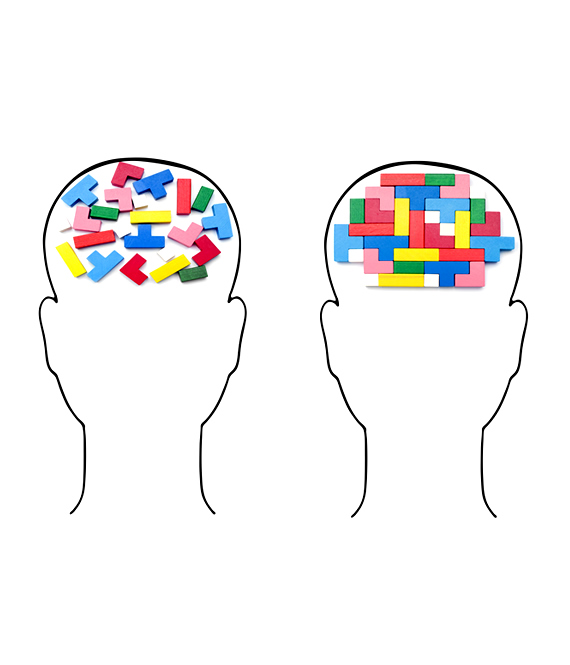
How To Overcome Trauma For Adults: 4 Bases of Resilience Building
We recommend helpful products in our articles. Read our full disclosure here. The content on this website is not intended to be a substitute for professional advice, diagnosis, or treatment.
The silent yet pervasive impact of trauma finds its way into the lives of adults, subtly eroding the quality of life, relationships, and professional standing.
Amidst these silent struggles is a dormant resilience, an unyielding potential for transformation waiting to be harnessed.
This journey from the shadowy paths of trauma to the illuminated trails of empowerment and resilience is neither linear nor solitary.
A good approach to this is to incorporate a program for adult trauma recovery, offering a harmonious blend of evidence-based strategies and individualized care.
Furthermore, below are some steps and strategies that can help elevate your life from the depths of trauma to the peaks of empowerment.
Recognize The Impact Of Trauma
Understanding the extensive impacts of trauma is the pivotal first step in unraveling the journey to resilience and empowerment.
These effects are intricate, permeating the mental, emotional, and physical realms of one’s existence.
For those affected, a range of emotional struggles, from increased anxiety to deep depression, often become a silent companion.
Below are the varied dimensions through which trauma manifests.
1. Altered emotional responses
An individual may experience intensified emotions or, conversely, an unsettling numbness, reflecting the internal chaos wrought by trauma.
2. Behavioral changes
Noticeable changes in social interactions, communication patterns, and overall behavior indicate profound internal distress.
3. Physical symptoms
Sleep problems, unexplained aches, and chronic fatigue often narrate the body’s silent testimony of psychological distress.
4. Cognitive impairments
An individual may suffer memory and concentration issues, highlighting the brain’s struggle to adapt and recover.
Identifying these complex responses and changes forms the cornerstone of the healing journey, offering a clarified understanding that can guide you toward determining the next actions to be taken.
Each symptom you recognize paves the way for targeted support and strategies to facilitate healing.
Build A Support Network
When it comes to healing from trauma, the transformative power of a support network is undeniable.
It serves as a crucial foundation for recovery, providing individuals with understanding, compassion, and unwavering support.
Through the collective efforts of this network, individuals can develop resilience and embrace their own inner strength.
Below are the essential elements of establishing a resilient network.
1. Personal relationships
The importance of family and friends who offer a listening ear, a shoulder to cry on, and a hand to hold can’t be underestimated.
Their intimate connections offer comfort and understanding.
2. Professional support
Therapists, counselors, and psychologists provide specialized assistance, offering coping strategies and tools to navigate the complexities of trauma.
3. Community resources
Groups and organizations create safe spaces where experiences can be shared, fostering a sense of belonging and mutual support.
As one moves through the stages of healing, the combination of personal, professional, and community support plays an important role in helping an individual cope and navigate their situation better.
It also strengthens their ability to face future obstacles with increased resilience and empowerment.
Empowerment Through Education
Education is a potent catalyst in healing from trauma and building resilience.
The more individuals understand their experiences and reactions, the more equipped they are to address them effectively.
Here are the key aspects of educational empowerment in the context of trauma recovery.
1. Understanding trauma
Gaining insights into the nature and impacts of trauma demystifies the experience, reducing fear and anxiety.
2. Learning coping strategies
Knowledge of various coping mechanisms aids in managing emotional and psychological upheavals with competence.
3. Resources and tools
Access to informational and practical resources can amplify individuals’ capacity to navigate the healing journey.
As individuals immerse in learning, they can cultivate a stronger sense of control, autonomy, and mastery over their traumatic experiences.
This enriched understanding can propel them to a path where resilience and empowerment become attainable and intrinsic qualities of their journey.
Implement Self-Care Practices
Self-care emerges as a crucial component in the intricate journey of overcoming trauma and building resilience.
It’s a personalized, holistic approach encompassing the physical, mental, and emotional realms, fostering overall well-being.
1. Balanced nutrition
A diet rich in essential nutrients fortifies physical health, amplifying the body’s capacity to cope with stress.
2. Physical activity
Regular exercise strengthens the body and helps alleviate trauma-induced anxiety and depression, enhancing one’s mental well-being.
3. Rest and relaxation
Prioritizing restorative sleep and relaxation techniques counterbalances the physiological arousal associated with trauma.
By implementing these self-care practices, individuals can create a holistic healing environment that nurtures their well-being and aids in their recovery process.
Conclusion
Small yet significant strides can shape the journey from the shadows of trauma to the light of resilience.
The steps and strategies outlined above can be a good start in empowering and renewing individuals who have experienced past suffering.
With courage and strength, every person has the ability to overcome their scars and weave them into a tapestry of resilience.
By doing so, they can face the future with unwavering grace and strength, no longer held back by the echoes of trauma.
"We love to research problems, examine studies, analyze solutions, and share with you ideas that make life healthier. You can learn about us and our editorial standards here. Have suggestions or feedback to share? Send us a message!."













Leave a Comment